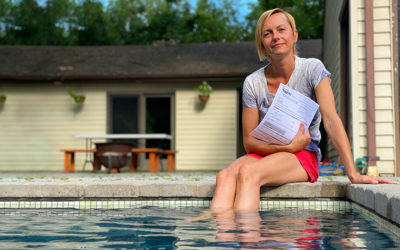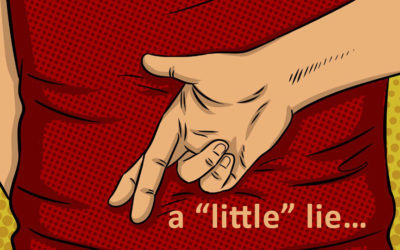HOME INSURANCE
Lower your premium
Make sure that you are getting all of the credits for which you are eligible. If you have an alarm system that reports to a central station, you can get up to a 10% discount. You typically get discount for recent updates in electricity, plumbing and heating systems as well for a newer roof.
HOME
Your home and its contents are among your biggest investments.
The
Fire or Lightning
Windstorm or Hail
Theft
Weigth of ice, snow or sleet
Vandalism/malicious mischief
Aircraft and vehicles
Explosion
Sudden or accidental tearing or bulging of heating or cooling systems
Riot or civil commotion
Falling objects
Freezing of plumbing systems
Sudden and accidental water discharge from plumbing or appliances
Sudden and accidental artificially generated electrical current
Protect your belongings
Your landlord isn’t responsible if your personal possessions are damaged or lost. The average renter has over $35,000 worth of belongings but the amount of coverage you’ll actually need depends on several factors. Renters Insurance may cost about $15 a day and it’s a smart investment.
RENTER
If you rent an apartment or a house, your belongings or your legal liability are not covered by your landlord’s insurance policy. If your possessions are stolen during a break-in or damaged by a fire or severe windstorm, a renters insurance policy can allow you to recover their value. If someone is injured during an accident in your home and you are alleged to be legally responsible, renters insurance may help protect you in the case a liability lawsuit.
Renters Insurance Covers:
Fire or Lightning
Windstorm or Hail
Freezing of plumbing system
Theft
Vandalism
Impact by a Vehicle
Higher cost of dwelling fire policy
Insurers experience more claims on tenant-occupied properties. This is because tenants are usually less tidy with rented properties than owners would be. This is the reason such policy may be 15% more expensive than homeowner policy. You should always encourage your tenants to purchase renter insurance.
LANDLORD’S POLICY
If you are planning to lease your home for a longer period of time, you will likely need a landlord or rental dwelling policy. Landlord policies generally cost about 25 percent more than a standard homeowners policy to pay for increased protections. If you are regularly renting out a vacation home or investment property, this would also require a landlord or rental dwelling policy.
Landlord policies provide property insurance coverage for physical damage to the structure of the home caused by fire, lightning, wind, hail, ice, snow or other covered perils. It also offers coverage for any personal property you may leave on-site for maintenance or tenant use, like appliances, lawnmowers, and snow blowers.
The policy also includes liability coverage, if a tenant or one of their guests gets hurt on the property, it would cover legal fees and medical expenses.
Most landlord policies provide coverage for loss of rental income in the event you are not able to rent out the property while it is being repaired or rebuilt due to damage from a covered loss. This coverage is generally provided for a specific period of time.
Do you need flood protection?
Flood is the nation’s most common natural disaster. Homeowners living far from coastlines may think they can skip flood insurance. But nearly 25 percent of flood claims are paid to people who live in areas considered to be at low to moderate risk for flooding.
FLOOD
Many homeowners are unaware that their home insurance doesn’t cover flood damage. Flood insurance is one of the best ways you can protect yourself from flood losses. Contents coverage can include possessions such as furniture, clothing and other valuables, subject to policy limits and exclusions.
It doesn’t take a major body of water or a significant storm to cause flooding. A flood can happen because of things like a slow-moving rainstorm, snow melt
Flood insurance is backed by the government. Most flood insurance is administered by the National Flood Insurance Program.
Catastrophic scenarios coverage
Without umbrella policy you can loose everything if you are involved in a serious accident and your liability will not cover all the damages. Most insurance companies charge about $250 a year for an umbrella policy. It is not much for the millions of dollars of coverage each year.
UMBRELLA
If you have increased the liability limits of your home, auto or other insurance policy to as high as your company will offer and still are not comfortable, you have two options. The first is typically called an excess liability policy. This policy does nothing to the terms of your other insurance policies – it simply raises the limit of liability you have available for a claim.
A second option is a personal umbrella policy. Most umbrella policies function as an excess liability policy. However, in addition to acting as a reserve, the umbrella provides additional coverage for types of losses that otherwise would not be paid. Examples of additional coverage may include:
Expanding the auto coverage territory to almost anywhere in the world
Personal injury coverage for claims such as libel or slander
Liability for certain claims resulting from your role as a director/officer of an organization
The intent of an umbrella policy is to extend limits and coverage on some or all of the insurance policies you currently have. Such policies typically include your homeowners and auto insurance policies and may also include others such as a condo, watercraft or ATV. The policies covered by the umbrella are called “underlying” policies.
To obtain an umbrella policy, you likely will have to prove that the limits of the underlying policies that it covers (such as your homeowners and auto insurance) are not less than a specified dollar amount.
Insurance Blog
Top factors that will increase homeowner’s insurance premiums
Every insurance company will assess the value of your home before issuing the home policy. The replacement value will be the main factor in determining the policy premium.
Little insurance lies with big consequences
When disaster strikes but insurance denies paying the claim, financial hell breaks loose. It’s often caused by misleading information on the original application for coverage.
Temporarily Suspending Your Car Insurance
Going away for an extended vacation? Living for military deployment? Garaging your convertible for winter? All of the above trigger a question: do you need the insurance for the vehicle you don’t use?
Get started online
Give us 24 hours and we'll give you the price!
PHONE
ADDRESS
258 DAYTON AVENUE
CLIFTON, NJ 07011
Serving New Jersey


